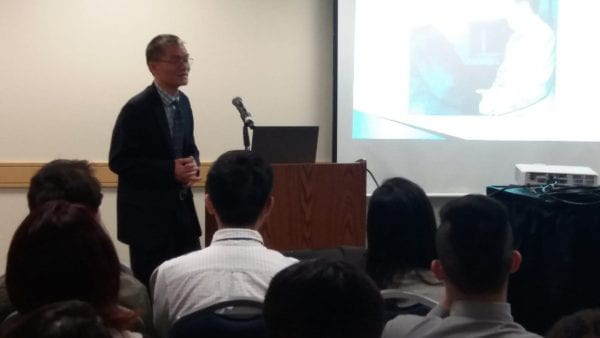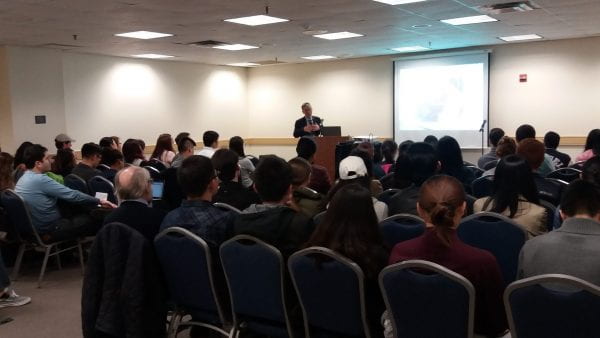Professor Yafeng Xia was invited as the second lecturer for the GW Institute for Korean Studies Lecture Series. This lecture attracted more than 70 people who are interested in the issues of Sino-North Korean relations. Yafeng Xia is currently a Professor of History at Long Island University in New York and Senior Research Fellow at Research Institute for Asian Neighborhood, East China Normal University in Shanghai. His lecture was about China’s policy towards North Korea during the Chinese Cultural Revolution from 1966 to 1969. He argues that despite the myth of the “brotherly affection” between China and North Korea, the relationship had reached its lowest ebb during the Cultural Revolution.
With the Cultural Revolution, China had radical and uncompromising policies both domestically and internationally. Chinese leaders accused North Korean leaders that they had become revisionists and the Red guards verbally attacked Kim Il Sung. North Korea also wasn’t shy with criticizing China’s leftist opportunism, dogmatism, and chauvinism. It was during that time when the economic and military aid that China was providing to North Korea was suspended, no high-levels visited mutually, and no cultural or economic agreements were signed. Though, he reemphasized the fact that both countries remained sensitive to the fragile relationship as China left North Korea alone from the Cultural Revolution and Kim Il-Sung never once criticized the Chinese leaders by name in public. There was also bilateral trade that continued between the two countries though limited.
With the examination of the historical relationship between the two countries during Cold War, Professor Xia provided three interpretations from different perspectives:
- Geopolitical and ideological perspectives: During the Cold War, Mao Zedong and Kim Il Sung maintained asymmetric alliance relations as a big power and a small power. Except for the period during the Cultural Revolution, Kim Il Sung visited China almost every year but Mao never set foot on North Korea. Nonetheless, Kim ensured North Korea’s political and diplomatic independence.
- Cultural traditions and diplomacy perspectives: Post-WWII Sino-North Korean relations were in the process of transformation from a suzerain/vassal state to a modern state-to-state relationship. It was a struggle between China’s concept of a suzerain/vassal state relationship and North Korea’s Juche ideology and resistance to flunkeyism.
- Code of conduct and political norms perspectives: The Sino-North Korean alliance demonstrated the structural drawbacks of relations among socialist states. Politically, China, “the big brother of this socialist family”, believed that it had the right to interfere in the internal affairs of “other members of the socialist family”, North Korea. On the other hand, the “younger brother”, North Korea, could be capricious and act shamelessly, while the “big brother”, China, endured the humiliation in order to carry out the common mission.
The lecture ended successfully with a high participation and vigorous questions. This event brought a lot of interest as the Sino-North Korean relationship is a subject that is not as commonly studied. We thank Professor Xia for taking his time to share his studies with the GW students, GW faculty members, and other scholars in DC.
Written by Ann Yang


